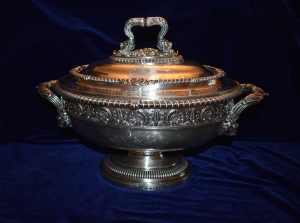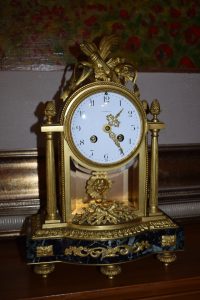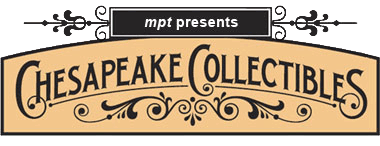Antiques, decorative objects and other furnishings can be important family heirlooms that are often passed down through generations. And while they may hold significant sentimental value, antiques and decorative objects may also have considerable monetary worth. It’s crucial to have an accurate understanding of their replacement cost, especially when it comes to insurance purposes. In this blog entry, we’ll discuss whether a person should get their antiques appraised for insurance purposes.
Understanding the Antiques Market
 Firstly, it’s important to understand that the antiques market has changed dramatically in the last few years. Collecting trends and changes in taste have had a major impact on everything from antique furniture to folk art. For example, in the last fifteen years, some antique Victorian furniture has experienced a reduction in both value and desirability. At the same time, Mid-century Modern furniture and related objects have seen a marked increase in popularity and value. Therefore, for insurance purposes, it’s essential to have an accurate and up-to-date appraisal to ensure that the item or items you own are adequately insured.
Firstly, it’s important to understand that the antiques market has changed dramatically in the last few years. Collecting trends and changes in taste have had a major impact on everything from antique furniture to folk art. For example, in the last fifteen years, some antique Victorian furniture has experienced a reduction in both value and desirability. At the same time, Mid-century Modern furniture and related objects have seen a marked increase in popularity and value. Therefore, for insurance purposes, it’s essential to have an accurate and up-to-date appraisal to ensure that the item or items you own are adequately insured.
Insurance Companies Need a Value
Insurance companies typically require a qualified appraisal of valuable personal property, including antiques. This appraisal is used to issue an insurance rider on your homeowner’s policy. Then, in the event of damage or loss, an appraisal can help determine the value of the items listed on your insurance rider to determine the amount of compensation needed to make you whole. Without a proper appraisal, you may receive inadequate compensation, which can be a significant financial loss.
Antiques Do Not Always Appreciate in Value
Furthermore, antiques do not always appreciate in value. In other words, age alone does not necessarily translate into value. Market fluctuations and rarity can have a big impact on antiques and collectibles. Condition issues, wear and tear, damage and environmental factors can also affect collectability and value. That is why it is vitally important to have a current valuable articles insurance appraisal that reflects the true worth of your prized possessions. A current appraisal will help ensure that your insurance coverage is appropriate, and that you’re not paying high premiums for something that has actually depreciated in value over time.
Detailed History of the Item
 Furthermore, antiques do not always appreciate in value. In other words, age alone does not necessarily translate into value. Market fluctuations and rarity can have a big impact on antiques and collectibles. Condition issues, wear and tear, damage and environmental factors can also affect collectability and value. That is why it is vitally important to have a current valuable articles insurance appraisal that reflects the true worth of your prized possessions. A current appraisal will help ensure that your insurance coverage is appropriate, and that you’re not paying high premiums for something that has actually depreciated in value over time.
Furthermore, antiques do not always appreciate in value. In other words, age alone does not necessarily translate into value. Market fluctuations and rarity can have a big impact on antiques and collectibles. Condition issues, wear and tear, damage and environmental factors can also affect collectability and value. That is why it is vitally important to have a current valuable articles insurance appraisal that reflects the true worth of your prized possessions. A current appraisal will help ensure that your insurance coverage is appropriate, and that you’re not paying high premiums for something that has actually depreciated in value over time.
Choosing a Reputable and Qualified Appraiser
But this is important. You must choose a reputable and qualified appraiser to ensure that the appraisal is accurate and reliable. A professional appraiser should have appropriate credentials and expertise in the specific type of antique being appraised. Here are some important factors to consider when hiring an antiques appraiser:
- Credentials and qualifications: Look for an appraiser who has appropriate credentials, such as membership in a professional appraisal association or certification from a recognized organization. These credentials can indicate that the appraiser has been tested and has the necessary knowledge and expertise to provide an accurate insurance appraisal.
- Specialization: Consider an appraiser who specializes in the specific type of items you need appraised. For example, if you have a rare piece of artwork or antique silver, look for an appraiser who has expertise in appraising both antiques and fine art.
- Experience: Check the appraiser’s experience level and their track record in the field. Look for an appraiser who has been in business for several years and has a reputation for providing accurate and reliable appraisals.
- References and reviews: Ask for references from past clients or look for reviews online. This can give you an idea of the appraiser’s level of professionalism and the quality of their work.
- Fees: Ask about the appraiser’s fee structure and make sure you understand the costs associated with an appraisal assignment before hiring them. Avoid appraisers who charge a percentage of the item’s value or a contingency fee, as this can create a conflict of interest. Moreover, ask for a written contract. All professional appraisers use them.
- Methodology: Ask the appraiser about their methodology and approach to appraisals. They should be able to explain their process in detail and provide you with a written report that includes all relevant information about the item being appraised.
- Ethical standards: Look for an appraiser who adheres to ethical standards, such as the Uniform Standards of Professional Appraisal Practice (USPAP). These standards ensure that the appraiser follows a set of guidelines and procedures that are recognized by the industry, the courts and the IRS.
By considering these factors, you can choose an antiques appraiser who is qualified and reputable. Such a professional can provide you with an accurate and reliable appraisal of your valuable antique personal property. It is also important that you have your appraisal updated regularly to make sure that your valuations accurately reflect any changes in the market or condition of the item.
Conclusion
 In conclusion, getting your antiques appraised for insurance purposes provides peace of mind and assurance that you will be appropriately compensated should you suffer a loss. Appraisals can also provide valuable information about your item(s) history, chain of ownership and value. This data not only adds to the sentimental and historical significance of your family possessions, but also provides a necessary valuation record for insurers, the courts and law enforcement in the event of a claim. It’s essential, however, to choose a qualified and reputable appraiser to provide you with a professional insurance appraisal that will stead both you and your family well.
In conclusion, getting your antiques appraised for insurance purposes provides peace of mind and assurance that you will be appropriately compensated should you suffer a loss. Appraisals can also provide valuable information about your item(s) history, chain of ownership and value. This data not only adds to the sentimental and historical significance of your family possessions, but also provides a necessary valuation record for insurers, the courts and law enforcement in the event of a claim. It’s essential, however, to choose a qualified and reputable appraiser to provide you with a professional insurance appraisal that will stead both you and your family well.







